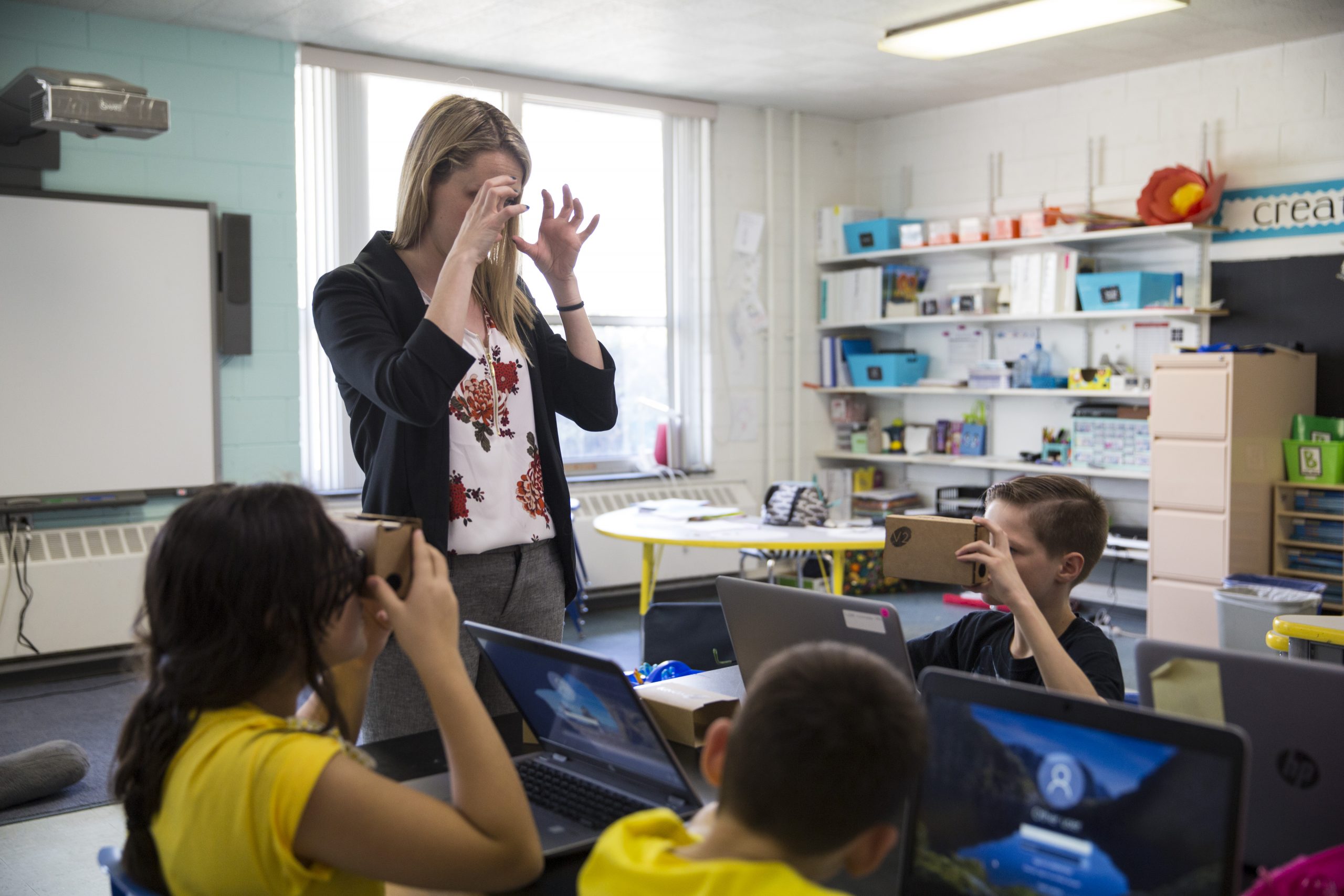Over the past four years, I have worked as my school district’s STEM (science, technology, engineering, and mathematics) Coordinator. I was given the opportunity to develop an elementary STEM program in my school as a teacher for the Department of Defense Education Activity (DoDEA). We educate, engage, and empower military connected students to succeed in a dynamic world. Our students in DoDEA are the children of active duty military and DoD civilian families on military installations in 11 foreign countries, seven states, Guam, and Puerto Rico. Together, we will pursue excellence in education for every student, every day, everywhere.
I grew up with a learning disability, so school was a challenge for me. I was often frustrated with my learning, and my dad taught me skills to overcome it. The learning disability never goes away, but I have techniques I use to assist my learning. My dad worked hard to give me opportunities to develop an understanding of why I needed to learn the concepts through hands-on experiences. I began to love learning and found a passion for science and engineering that I now share with my students.
My passion for STEM education comes from my childhood. As a child, I can remember the summer sun beating down on me as I kneeled on the grass next to my dad as he went over the safety rules for launching a model rocket. My dad, a firefighter, was a stickler for safety and would triple check the connections. The rocket was connected to the starter, and my dad would tell me to count loudly and slowly so that everyone can hear you and know I was about to launch it. My siblings and friends would scatter and hoped they picked the spot where the rocket would land, excited to be the one to recover it. This childhood experience is something I share through a model rocket unit I do with my fourth-grade students.

As a STEM and elementary teacher, I always strive to provide my students with real-world opportunities to apply the content they learned in class. My father taught me to be curious about the world, and I want my students to be curious too. Each year, fourth-grade students develop an understanding of how force and motion principles can be applied to rocketry. They spend three weeks building a model rocket piece by piece, making every decision from fin placement to the type of recovery system. They utilize what they have learned about force and motion and apply it to their design. This project gives the students the chance to build their knowledge while building a rocket.
I recognize the value in providing my students with similar real-world projects and problems to be solved just like my father had given to me as a child. These learning experiences give my students a chance to take on the role of learner and leader which is empowering.
One of the appeals of teaching STEM lessons, like our rocket unit, is the opportunity for students to work through the engineering design process (EDP) much like real engineers do. This unit, in particular, provides the students with the chance to work through failures and mistakes, which I believe is a critical need in education. If their rocket doesn’t launch on the first attempt they can’t just give up; they have to troubleshoot the issues to successfully launch on another attempt. The students can persevere through the challenge until they succeed, much like a NASA engineer would in real life.
As my students kneel in the grass next to their rocket on the launch pad, I am transported back to my childhood. I remind my students, as my father reminded me, “to count loudly and slowly so that everyone can hear you,” preparing them for blast off. With a single launch of rocket, I am left wondering if this experience will impact their future as much as it did mine.
